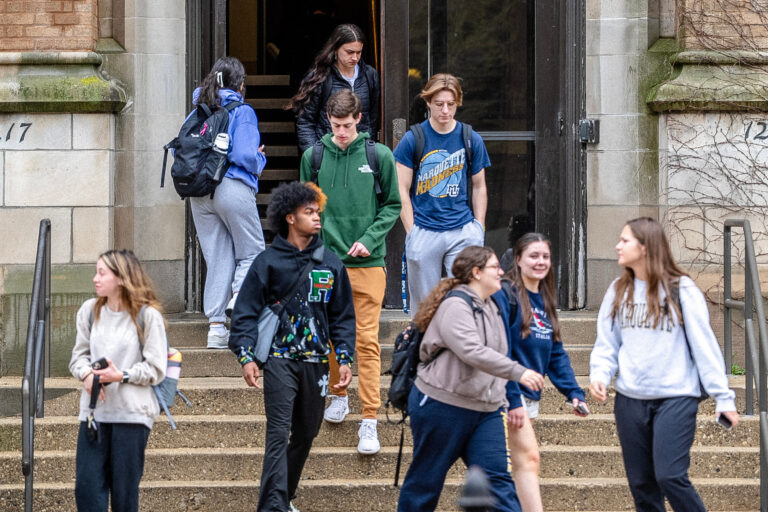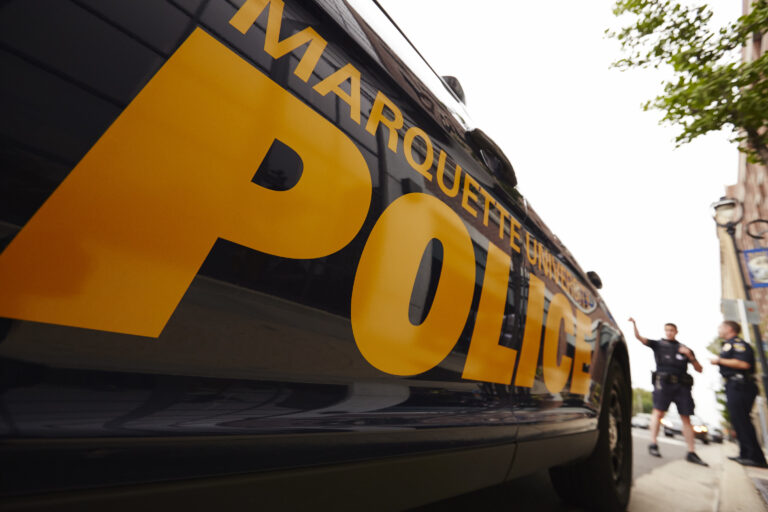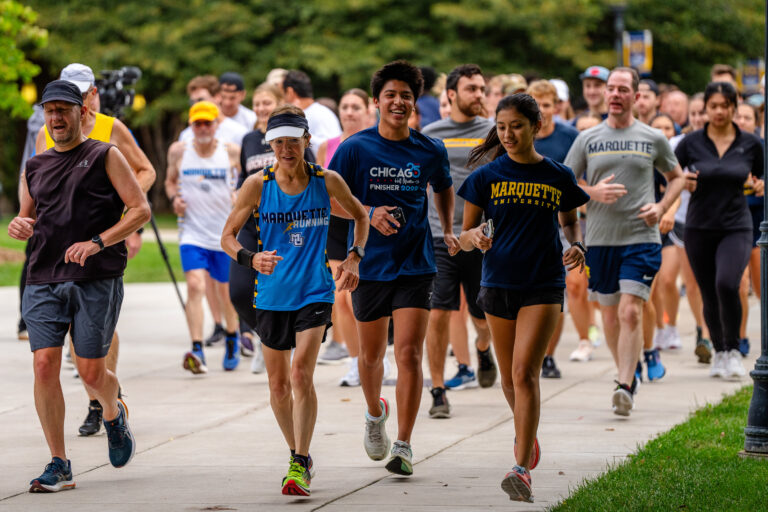In an effort to promote research and scholarship conducted by Marquette faculty and staff, the Office of Marketing and Communication and the Office of Research and Sponsored Programs have partnered to present a monthly recap of recent grants awarded to faculty and staff.
The report will be featured in Marquette Today each month.
The following grants were awarded to university faculty and staff in November 2020.
Age Friendly Health Systems in Wisconsin
$25,000 – Bader Philanthropies, Inc.
 Dr. Stacy Barnes, associate professor of nursing and director of the Wisconsin Geriatric Education Center in the College of Nursing.
Dr. Stacy Barnes, associate professor of nursing and director of the Wisconsin Geriatric Education Center in the College of Nursing.
Abstract: This grant will allow Marquette to create and facilitate an Age-Friendly Health Systems action community in Wisconsin to share best practices for engaging with older patients. This initiative is grounded in four evidence-based elements of high-quality geriatric care known as the “4 M’s”: Mobility, Medications, Mentation and what Matters. Participants will implement and test the 4 M’s framework in various health care settings and share lessons learned in a 12-month virtual community.
Novel Iron-Based Electrocoagulation-Peroxidation Treatment Process for Removal of PFAS
$50,000 – Industry/University Cooperative Research Center for Water Equipment and Policy

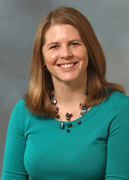 Dr. Patrick McNamara (principal investigator) and Dr. Brooke Mayer, associate professors of civil, construction and environmental engineering in the Opus College of Engineering.
Dr. Patrick McNamara (principal investigator) and Dr. Brooke Mayer, associate professors of civil, construction and environmental engineering in the Opus College of Engineering.
Abstract: The research team seeks to develop a novel iron-based electrocoagulation-peroxidation process for the removal of synthetic chemicals with emerging widespread concern—perfluorooctanoic acid and perfluorooctanesulfonic acid. This technology is aimed for use in small drinking water treatment systems, including in private homes or multiple residences fed by well water.
Improved process-based Phosphorus cycle models to optimize wet detention pond operation and maintenance
$57,749 – Industry/University Cooperative Research Center for Water Equipment and Policy
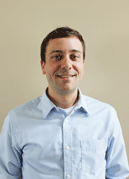 Dr. Anthony Parolari (principal investigator), assistant professor, and Dr. Brooke Mayer, associate professor of civil, construction and environmental engineering, in the Opus College of Engineering.
Dr. Anthony Parolari (principal investigator), assistant professor, and Dr. Brooke Mayer, associate professor of civil, construction and environmental engineering, in the Opus College of Engineering.
Abstract: Wet detention ponds are one of the most common storm water best management practices to address water quality. However, wet detention ponds provide inadequate phosphorus retention and pond water quality performance typically does not meet regulatory standards. This project will identify pond operation and maintenance strategies to ensure phosphorus removal from stormwater.
Nanotechnology in Drinking Water Treatment Systems: Risk and Regulatory Compliance
$30,000 – Industry/University Cooperative Research Center for Water Equip and Policy
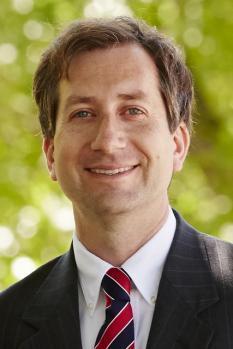
David Strifling, director of the Water Law and Policy Initiative and adjunct professor of law in Marquette Law School.
Abstract: Many projects funded in recent years have some connection to the use of nanotechnology in drinking water treatment systems, from detection sensors to pollutant removal to coatings. The problem is that alongside their great promise, nanomaterials also carry poorly understood risks to public health and the environment and no uniform framework exists to regulate nanomaterials in drinking water. This project is intended to streamline the implementation of those technologies by examining and beginning to resolve the regulatory uncertainty surrounding them.
Ultra sensitive 30 nm thick SiN membrane pressure sensors
$50,000 – Industry/University Cooperative Research Center for Water Equip and Policy
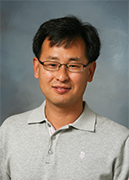
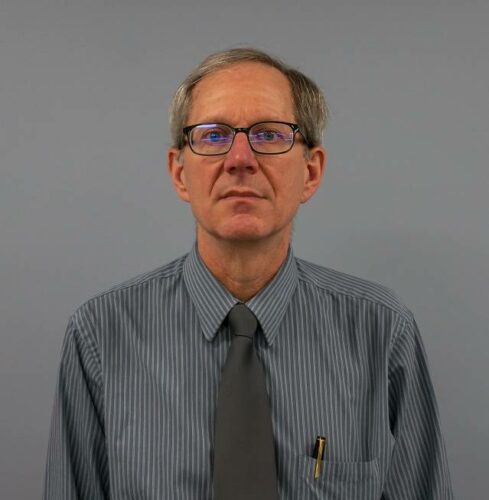 Dr. Chung Hoon Lee (principal investigator) and Dr. James Richie, associate professors of electrical and computer engineering in the Opus College of Engineering.
Dr. Chung Hoon Lee (principal investigator) and Dr. James Richie, associate professors of electrical and computer engineering in the Opus College of Engineering.
Abstract: Measuring liquid and steam pressure is a basic requirement for many industrial processes to operate safely, efficiently and with optimum quality control. This award will allow researchers to work towards the development of a low cost 30 nm thick silicon nitride membrane pressure sensor, which is ultrasensitive to pressure, for liquid application.
A Continuous Heavy Metal Contaminant Measurement System in Drinking Water
$50,000 – Industry/University Cooperative Research Center for Water Equip and Policy
Dr. Chung Hoon Lee (principal investigator) and Dr. James Richie, associate professors, and Dr. Henry Medeiros, assistant professor of electrical and computer engineering, in the Opus College of Engineering.
Abstract: The goal of this project is to develop a static and non-interfering heavy metal contaminant sensor that makes continuous measurements for a heavy metal contaminant (Pb) in water using an AC magnetic field generated by RF resonator. A previous project showed that the detection limit of our technology is about 5 ppb of Pb concentration in water. The goal is to develop micro/macro sensors to detect 1 ppb Pb concentration continuously in city water.
Andrew Goodman Vote Everywhere Program
$1,000 – The Andrew Goodman Foundation
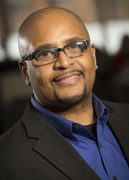
Dr. Robert S. Smith, Harry G. John Professor of History and director of the Center for Urban Research, Teaching and Outreach in the Klinger College of Arts and Sciences.
Abstract: This award contributed to campus resources aimed at strengthening democracy by leading long-term voter engagement, public policy, organizing, and advocacy initiatives. Andrew Goodman Vote Everywhere is a nonpartisan, experiential program that recruits, trains, and supports emerging leaders at colleges and universities in the United States.
Blackmore End Paralysis Agreement
$4,847 – EndParalysis Foundation
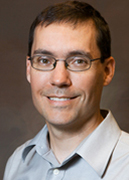 Dr. Murray Blackmore, associate professor of biomedical sciences in the College of Health Sciences.
Dr. Murray Blackmore, associate professor of biomedical sciences in the College of Health Sciences.
Abstract: Based on a recent discovery from the Blackmore lab that a combination of two transcription factors stimulate robust and highly reliable growth from corticospinal tract axons1, this award will advance this promising new gene therapy approach. The goal now is to push in the direction of translation by determining whether this combination is similarly effective in more chronic and clinically relevant model of spinal contusion.
Dental Pain Project
$3,722 – State of Wisconsin Department of Health Services
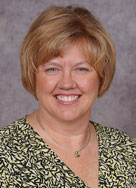 Carol Trecek, director of continuing education and alumni relations in Marquette School of Dentistry.
Carol Trecek, director of continuing education and alumni relations in Marquette School of Dentistry.
Abstract: This funding will allow the Marquette School of Dentistry to provide American Dental Association continuing education course, “Dental Pain Management in Clinic Settings,” aimed at improving understanding of pain control in dentistry and current best prescribing practices for opioids, including the use of non-opioid medications, and a better understanding of and how to support patients with substance use disorder.
